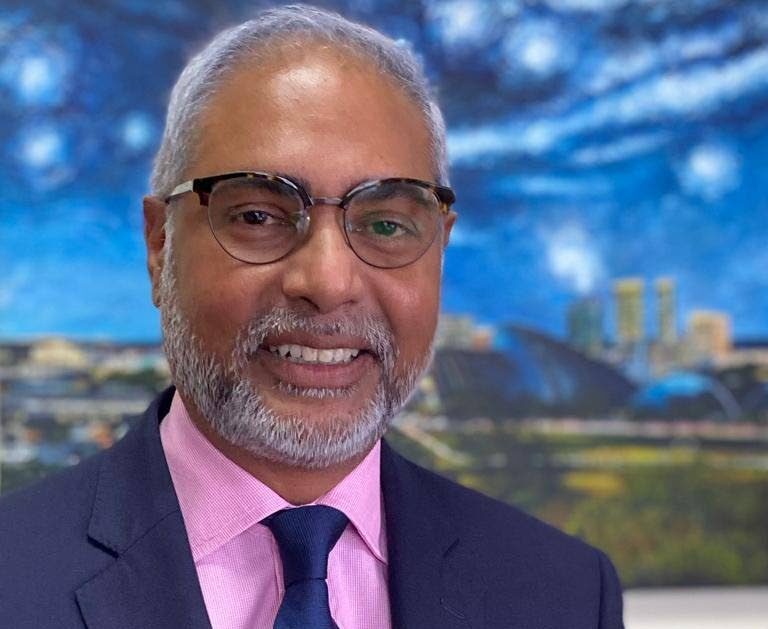Controversy brewing over silk appointments

A senior attorney and former Law Association council member, Darrell Allahar, wants to know if the Attorney General consulted the association or its president, Lynette Seebaran-Suite, on the recent senior counsel appointments.
Allahar wrote to the association’s secretary on June 20, asking questions.
He also wanted to know, if LATT or its president were consulted and provided feedback, what was the process, and whether the council had approved it.
Earlier this week, 14 attorneys took “silk” (were made senior counsel), among them two government ministers and an MP. Two more are still to receive their appointments as they were out of the country.
Contacted on June 20, Seebaran-Suite said the association was expected to issue a statement.
Allahar asked, among other things: “Did that process involve consideration of the views of persons other than the president of the LATT and if so, how were they selected?
“Was anyone involved in that process supplied with copies of the applications and resumes of the applicants for ‘silk’?
“Was it left to the president of LATT to make the final decision on the persons to be recommended to the Attorney General?
“If the president of LATT made the final decision on those recommendations, what factors did she take into account?
“How many persons were ultimately recommended to the Attorney General by the president of LATT and the reason for that specific number?
“Does the council intend to make the information requested herein available to all of the members of LATT?”
On June 17, President Christine Kangaloo outlined the selection process, saying it was guided by the terms of the legal order 282 of 1964.
It started, she said, with the Attorney General inviting attorneys to apply, after which he would consult with the Chief Justice and “such other persons as he considers necessary.” The AG would then recommend attorneys to the Prime Minister, who would advise the President of those to be awarded silk.
Allahar said in 2023, in a statement, LATT said it had had no consultations with the Attorney General on the merits of those attorneys who applied.
On June 18, Senior Counsel Israel Khan also raised questions over the award of silk to former attorney general Faris Al-Rawi,
He said the Criminal Bar Association (CBA), which he heads, was of the view the minister should not be awarded senior counsel status unless he was “cleared of all wrongdoings” concerning the indemnity agreement he entered into for the Government with convicted King’s Counsel Vincent Nelson.
Also questioning the appointments was former speaker Nizam Mohammed. His name was on two lists of attorneys to be awarded silk, but he was seemingly bypassed for selection.
He has not ruled out possibly submitting a freedom of information request to find out why he was not selected.
Allahar reminded of the recommendations of the "silk report” produced by a special committee of LATT, which was adopted.
He said one recommendation was an independent panel comprising certain officeholders and three senior counsel.
“Another recommendation was for stringent selection criteria as listed in the report.
“It cannot be doubted that the recommendations of the ‘silk report’ were intended to provide a degree of transparency to the process by the identification of the persons involved in selection as well as the criteria to be taken into account.
“In like manner and consistent with the ethos of the 'silk report,' the LATT ought to embrace transparency and openness in relation to any role it may have played in the selection process leading up to these recent awards.”
On June 17, the president of the Assembly of Southern Lawyers called for an independent committee to be set up immediately to recommend attorneys for the award.
Saira Lakhan said this was needed so that people would not conclude appointments were based on political patronage.
“When multiple attorneys at law who are career politicians were elevated to the rank of senior counsel, both today and in the past, it is prudent to have an independent panel to review the applications made and to recommend appointments based on merit so as not to cause the reasonable person to draw the conclusions that appointments were made based on political patronage whilst neglecting to recognise members of the Bar who were deserving of such as elevation.
She said this was especially relevant when senior attorneys "with decades of practice in all of the courts in Trinidad and Tobago and who were involved in landmark judgments" were continually overlooked "without reason," while other attorneys were appointed senior counsel who had less experience and skill.
Also questioning the process were several senior lawyers who, in comments to Newsday, said it now appears to be “nothing more than a long-service award” for one’s allegiance to the party in government.
One attorney said the consultative process appeared to be “optional and irrelevant.”
“The award of silk is now known to be synonymous with a knighting of a political badge.”
A senior criminal defence attorney questioned why attorney Jagdeo Singh was also not selected, although his application included recommendations from a King’s Counsel, former AG Ramesh Lawrence Maharaj, SC, retired Appeal Court judge Stanley John and former independent senator and industrial-relations specialist Diana Mahabir-Wyatt.
“There are others equally deserving such as Kelvin Ramkissoon, Prakash Ramadhar and Nizam Mohammed.
“This grave injustice is noted by many.
"Most recently, it was revealed that even persons with criminal charges were awarded silk.
“The bar has certainly dropped. There is now a moral degradation of the legal profession which is now a monumental mockery.”

Comments
"Controversy brewing over silk appointments"